Author: lagoodson
Welcome to Another School Year!
 Welcome to a new school year and to the Fall 2023 issue of Rural Crossroads: CONNECTIONS—the Rural Education Center’s newsletter designed to amplify rural accomplishments, future projects, and your concerns.
Welcome to a new school year and to the Fall 2023 issue of Rural Crossroads: CONNECTIONS—the Rural Education Center’s newsletter designed to amplify rural accomplishments, future projects, and your concerns.
In this issue, we will give you an update on several grants the REC has received—and what it means for your school district. (Already this semester, we’ve received more than $4 million in project funding, with the majority of that funding going toward equipment and resources for rural schools.
Speaking of grants, we’re going to start a new project which we think you’ll find valuable. We will be providing grant-writing support for rural schools to achieve some of their goals. For example, do you have a class that needs a special resource? Or funds for some technology? We’re interested in hearing how grant funding might help make those happen. Read the news item below to get details!
We also introduce you to our growing staff at the REC. We’re fortunate to have several talented staff members who are eager to help rural schools succeed!
And there’s plenty more that you can read all about. Hope you enjoy this issue of the newsletter, and don’t hesitate to reach out to us!
REC Director Participates in US Dept. of Education Roundtable
Spencer Clark, director of the Rural Education Center, recently participated in a roundtable discussion as part of U.S. Secretary of Education Miguel Cardona’s Back to School Bus Tour 2023: Raise the Bar.
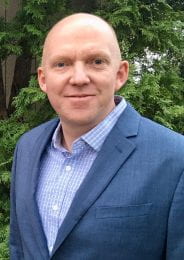 Clark was invited to the roundtable of state and local leaders, held in partnership with the Kansas Department of Education on Sept. 5, to highlight the work of the REC. The session was designed for participants to share highlights of their projects and discuss how the U.S. Department of Education can support their work. The event was held at the Kansas Association of School Boards headquarters in Topeka.
Clark was invited to the roundtable of state and local leaders, held in partnership with the Kansas Department of Education on Sept. 5, to highlight the work of the REC. The session was designed for participants to share highlights of their projects and discuss how the U.S. Department of Education can support their work. The event was held at the Kansas Association of School Boards headquarters in Topeka.
In addition to the Kansas visit, Secretary Cardona’s multi-state tour featured stops in Missouri, Illinois, Wisconsin and Minnesota.
The REC has gained recognition for its various projects. These include:
- Grants totaling more than $10 million so far, including receiving funding for a $4 million grant last month.
- Technology training for teachers and resources, such as double robots, drones, and virtual reality equipment.
- Its development of a Rural Professional Development Schools network that now includes 15 rural districts from across the state.
- Sponsoring two successful summer STEM camps:
- The LEAPES (Learning, Exploration, and Application for Prospective Engineering Students) camp trained more than 50 educators in rural areas and provided camp opportunities in the STEM areas of Science, Technology, Engineering and Math for nearly 500 middle and high school students.
- The Virtual STEAM Academy featured topics in Science, Technology, Engineering, Arts, and Math. Nearly 360 students participated, including nine Kansas sites and eight international sites.
Clark is a professor in the College’s Department of Curriculum and Instruction.
Our RPDS Network is Growing
We’re excited to announce that we now have 15 school districts who have joined us to be part of our Rural Professional Development Schools network. These districts are our go-to districts for various projects, including grants.
Check out the map to see how the REC has Kansas covered!

How About Some FREE Help with Grant Writing?
Have you wanted to write a small grant proposal but don’t know where to start? Or maybe you don’t have time to add one more project to your day? Maybe we can help!
The REC is creating a grant-writing team for our rural school partners—beginning with our RPDS network. As our staff grows (see the item in this issue), we want to begin a new project—providing grant-writing assistance to your school district!
While receiving multi-million-dollar grants is amazing, we also know that much smaller individual grants can have a tremendous impact—on a classroom, a teacher’s project, or a building. We’d love to be able to fund all your ideas ourselves, but submitting a grant is the next best thing!
To get started, we’re encouraging the 15 partners in our RPDS network to each send us a “wish list” to provide an area of need for your school (and a funding agent, if you know of one). Then we will select one or two each semester to help write. These grants will probably be in the $500 to $2000 range for now, as we begin this project. As our team gets more comfortable writing grants, we hope to increase the number of grants we work on each year.
We’re excited about this project—we think it will help add some needed items in rural classrooms.
To be considered, email us at ruraled@ksu.edu with GRANT in the subject line. Include the following:
- Contact name, email address
- School and district
- Two to three sentences about what you would use the funds for and why
- Suggested funding agent (if you know of one)
- Estimated amount you’re seeking
- Any other helpful information
We’ll make our selections quickly and let you know as soon as possible whether your project has been chosen.
Get to Know Our Newest REC Team Members
Ennis Rios started this summer as the program coordinator for the REC.

A Kansas City native, he served in the US Navy for 15 years as an Information Systems Technician specializing in shipboard radio and data communications for the first half of his career before moving into the Naval Special Warfare community, where he specialized in mobile communications. Upon leaving the Navy in 2015, he attended Texas A&M University, earning his undergraduate degree in Geographic Information Science and Technology and a Master’s in Water Management and Hydrological Science.
In this new role with the REC, he is excited to leverage his academic and professional background to disseminate scientific knowledge and inspire the next generation of scientists in communities across Kansas.

Marzieh Ebrahimi is a skilled research assistant at Kansas State University, pursuing her PhD program in Curriculum and Instruction, with her main research focus on implementing technology in education. She is mainly involved in doing some research related to VR/AR and their adoption in education system. With her vast experience in this field, she has developed a deep understanding of how technology can be used to improve learning outcomes for students and educators alike. Currently, in collaboration with Rural Education Center, she is working on LEAPES and SPECA Projects.
Marzieh has a Bachelor’s degree in English Literature and two Master’s degrees in Teaching English as a Second Language (TEFL) from Azad university, and Teaching Persian to non-Persian Speakers from Ferdowsi University in Iran, which has equipped her with the theoretical and practical knowledge to work in this field.
Marzieh is an excellent team player and has collaborated with other researchers to publish research papers and present at national and international conferences. Her dedication to her work has earned her recognition in the academic community. With her passion for education and technology, Marzieh is committed to making a positive impact on the lives of students and teachers through her research.
Marzieh Ebrahimi undertakes an important responsibility as a co-president within EGSO (Education Graduate Student Organization), actively participating in the joint leadership and guidance of the organization. Additionally, she facilitates various projects aimed at augmenting the academic and professional development of its members.
As a graduate assistant, Marzieh will provide assistance for various REC projects.
 Nooshin Darvishinia is a doctoral candidate in Curriculum and Instruction at Kansas State University, focusing on the dynamic intersection of technology and education. She also focuses on equity in educational contexts. A winner of a literary contest, Nooshin is deeply interested in the role of storytelling in both teaching and learning. This interest has informed her 12-year career as an English Language instructor. As a Graduate Research Assistant at the Rural Education Center (REC), she has been working on LEAPES and SOARING projects, aiming at advancing education through innovative applications of technology in rural contexts. Nooshin holds a master’s degree in teaching English as a Foreign Language (TEFL), and a bachelor’s degree in English Literature.
Nooshin Darvishinia is a doctoral candidate in Curriculum and Instruction at Kansas State University, focusing on the dynamic intersection of technology and education. She also focuses on equity in educational contexts. A winner of a literary contest, Nooshin is deeply interested in the role of storytelling in both teaching and learning. This interest has informed her 12-year career as an English Language instructor. As a Graduate Research Assistant at the Rural Education Center (REC), she has been working on LEAPES and SOARING projects, aiming at advancing education through innovative applications of technology in rural contexts. Nooshin holds a master’s degree in teaching English as a Foreign Language (TEFL), and a bachelor’s degree in English Literature.
In addition to co-authoring a book chapter, she has served as a reviewer for several peer-reviewed journals. Nooshin has also presented her work at numerous national and international conferences. Notably, she spoke at the International Conference on Educational Sciences, Psychology & Humanities in Belgium and the National Conference on Language, Literature, and Translation in Education at Maybod University. In March 2023, she presented her research on Teachers’ Instructional Approaches Toward Telepresence Robots in Education at the Critical Questions in Education Conference in San Diego, California. Her recent publications include a paper on Artificial Intelligence in education.
In her other role as the Vice President of the Education Graduate Student Organization (EGSO), Nooshin is committed to fostering a vibrant and supportive community for graduate students in the field of education.
As a part of the REC, she is involved in various projects, including overseeing the REC’s social media.
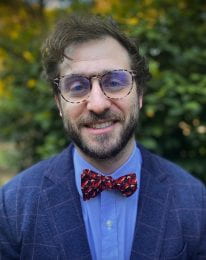 Dillon Simmons specializes in online learning experiences and related educational technologies. As a research coordinator for the Rural Education Center, Dillon leverages several years of Secondary and Collegiate teaching experience to empower teachers in rural schools with resources and training they can use to provide new quality STEM learning experiences to their students.
Dillon Simmons specializes in online learning experiences and related educational technologies. As a research coordinator for the Rural Education Center, Dillon leverages several years of Secondary and Collegiate teaching experience to empower teachers in rural schools with resources and training they can use to provide new quality STEM learning experiences to their students.
Dr. Simmons’s doctorate focused on expanding quality online learning opportunities to support more diverse learning styles. His master’s emphasized reinforcing culturally relevant and responsive content to build literacy skills. At the REC, he is Research Coordinator and an in-house STEM expert.
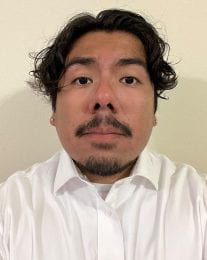 Hector Ramos is our undergraduate student-worker, who usually can be found in the REC office, BH 244, keeping us all organized. He began working in the REC office at the beginning of the fall semester.
Hector Ramos is our undergraduate student-worker, who usually can be found in the REC office, BH 244, keeping us all organized. He began working in the REC office at the beginning of the fall semester.
Hector, originally from Garden City, is a second semester Mechanical Engineering student and a veteran of the U.S. Marine Corps. While in the Marines, he was an Aviation Mechanic and Quality Assurance Technician.
STEM, STEAM Took Center Stage in Camps throughout Rural Kansas
What a summer!
The REC, through a U.S. Department of Defense NDEP grant and its Virtual STEAM Summer Academy, was able to provide science, technology, engineering, arts and mathematics experiences to hundreds of rural middle and high school students in rural Kansas, while also training dozens of teachers to lead their own STEM workshops.
 Learning, Exploration, and Application for Prospective Engineering Students, or LEAPES, offered training for teachers as well as support for summer camps across Kansas. Check out the LEAPES activities at: https://coe.ksu.edu/collaborations/documents/LEAPES%20Yr%202%202023.pdf The University of Kansas partnered with us on the grant to provide experiences for high school students.
Learning, Exploration, and Application for Prospective Engineering Students, or LEAPES, offered training for teachers as well as support for summer camps across Kansas. Check out the LEAPES activities at: https://coe.ksu.edu/collaborations/documents/LEAPES%20Yr%202%202023.pdf The University of Kansas partnered with us on the grant to provide experiences for high school students.
 Here’s a report on the Virtual STEAM program for summer 2023, which reached 359 middle schoolers—including several international sites: https://coe.ksu.edu/collaborations/documents/Virtual%20STEAM%202023.pdf While we don’t have next summer’s content set yet, this will give you ideas about our topics and teachers: https://www.k-state.edu/stem-career-education/summercamps/summer-STEAM-classic.html
Here’s a report on the Virtual STEAM program for summer 2023, which reached 359 middle schoolers—including several international sites: https://coe.ksu.edu/collaborations/documents/Virtual%20STEAM%202023.pdf While we don’t have next summer’s content set yet, this will give you ideas about our topics and teachers: https://www.k-state.edu/stem-career-education/summercamps/summer-STEAM-classic.html
Want to be involved next year? Reach out to Ennis Rios at ruraled@ksu.edu.
KELI Provides Support for New Principals
 If your district has a new principal in their first year, please consider enrolling them in the Kansas Educational Leadership Institute (KELI) mentoring program that meets the needs of upgrading their license.
If your district has a new principal in their first year, please consider enrolling them in the Kansas Educational Leadership Institute (KELI) mentoring program that meets the needs of upgrading their license.
But more importantly, KELI will assign them a trained mentor to support them with onsite visits four times throughout the school year, and state-wide cohort meetings provided in partnership with the United School Administrators (USA) team.
KELI is a partnership among Kansas State University, Kansas State Department of Education, Kansas Association of School Boards, United School Administrators of Kansas, and the Kansas School Superintendents Association to provide advanced leadership development and mentoring for educational leaders. Mischel D. Miller is executive director of KELI, which is based in the College of Education.
For more information on how KELI can help your district, contact her at mischel@ksu.edu.
Be Sure to Register for Classroom Management Presentation
Save the date: Nov. 18!
That’s when Katie Anderson, M.Ed., NBCT, Conscious Teaching, LLC, will discuss “Creating a Positive Learning Environment Through Conscious Classroom Management.” It begins with check-in at 8:30 a.m. and runs until 3 p.m. at the K-State Alumni Center.
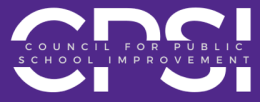 This lively, interactive training will give K-12 educators dozens of practical strategies to use tomorrow to better manage classes and lead students. Both prevention and intervention techniques are shared and modeled. Every participant will walk away with the tools they need to create the safe and structured learning environment they’ve always wanted.
This lively, interactive training will give K-12 educators dozens of practical strategies to use tomorrow to better manage classes and lead students. Both prevention and intervention techniques are shared and modeled. Every participant will walk away with the tools they need to create the safe and structured learning environment they’ve always wanted.
Participants will learn:
- How to see the best in the toughest students.
- How to teach and reinforce procedures that maximize focus.
- How to use consequences to teach personal responsibility.
- How to de-escalate volatile situations with oppositional students.
- How to make visible the invisible elements of effective classroom management.
The session is offered through the Council for Public School Improvement (CPSI), a public school/university partnership between Kansas school districts and the College of Education.
Questions? Reach out to Tonnie Martinez, executive director of the group, at tonnie@ksu.edu.
Save Time By Checking Out These Items!

We know you’re busy. But we also know you want to stay informed. With Rural Reads, we bring you a sampling of what’s going on in rural education. Hope you find some of these useful!
Increasing Teacher Retention: Hanover Research prepared a document, 4 Strategies to Increase Teacher Retention, in 2021. It focuses on supporting teacher well being, promoting teacher engagement, creating a supportive school climate, and monitoring teacher retention and attrition. https://wasa-oly.org/WASA/images/WASA/6.0%20Resources/Hanover/4%20STRATEGIES%20TO%20INCREASE%20TEACHER%20RETENTION.pdf
New Rural Teacher Retention Narrative: In the Journal of Research in Rural Education, authors from the University of Chicago and the University of Colorado-Colorado Springs highlight the positives rather than the negatives. They examine why teachers stay in rural schools, rather than why they leave. https://jrre.psu.edu/sites/default/files/2022-01/37-8.pdf
Highlighting Place-Based Projects in Rural Schools: Nate McClennen, with Teton Science Schools, discusses the power of innovation in rural schools–and making the most of learning in their communities. Nate is also on the Rural Schools Collaborative board of directors. https://ruralschoolscollaborative.org/stories/you-want-to-do-what-innovation-in-rural-schools
Students Helping Other Students: An article by the Statehouse News Bureau discusses how some Ohio schools are coping with the lack of mental health counselors by helping students be more aware of their peers’ struggles. https://www.statenews.org/news/2023-08-14/amid-counselor-shortage-rural-schools-are-training-students-to-help
I Am a Rural Teacher: I couldn’t choose one specific article on this site–too much good rural “stuff” to check out. Or maybe it’s just the former middle school/high school English teacher in me offering choice. https://iamaruralteacher.org
Rural Voices: This series of podcasts offers up-to-date information on a variety of rural-based topics. https://nrea.simplecast.com/
Robots and Rural Schools: Speaking of English teachers…The National Rural Education Association features this interview with an English teacher who is also the high school robotics instructor at a small Oregon school. As many of you have been receiving technology resources through the Rural Education Center’s projects, we thought you might be interested in this. https://www.nrea.net/from-rec-foundation-interview-with-a-rural-stem-teacher-from-oregon
Dr. Parton’s Literacy in Place: If you attended last spring’s Rural Education Summit sponsored by the Rural Education Center, then you know how passionate Dr. Chea Parton is about literacy in rural schools. Here’s a link to her website, with lots of resources for rural teachers: https://literacyinplace.com
But, we also wanted to highlight a new literacy contest on her site that’s all about rural. The Literacy In Place Rural TeenWriting Contest is a great opportunity for your students to share their stories! The theme for the inaugural contest is “Eat, Dance, and Be Rural: Celebrating Diverse Rural Cultures.” Deadline is December 1, 2023–still time to enter! https://literacyinplace.com/inaugural-literacy-in-place-writing-contest/
We Want to Hear from You
![]()
The REC staff became involved in this center because we want to amplify rural education successes and help build upon those successes. We want your ideas on how we can best serve you. So please feel free to email us at ruraled@ksu.edu.
The Rural Education Center
Lori Goodson, Editor
Amanda Causey, Technical Editor
2022 Fall Rural Crossroads
 We’re glad to share the Fall 2022 issue of Rural Crossroads: Connections, published by the Rural Education Center in the College of Education at Kansas State University!
We’re glad to share the Fall 2022 issue of Rural Crossroads: Connections, published by the Rural Education Center in the College of Education at Kansas State University!
As another new school year has begun, we’re excited about all the opportunities the REC and our rural school partners have before us. We hope you’ll enjoy this issue because we’ve packed it with information about the Rural Summit, grant opportunities, a new program specifically for future rural educators and much, much more.
As always let us know if you have questions about any of these opportunities or if you have ideas you’d like us to address. Be sure to reach out to Lori Goodson, lagoodson@ksu.edu, or the REC, ruraled@ksu.edu. We’re always glad to hear from you!
2 STEAM Camps Reach 775 Students
After a summer where K-State’s College of Education (COE) brought STEAM (science, technology, engineering, arts and math) experiences to 775 middle school and high school students during three weeks in June, we are gearing up to expand our two new programs.
 STEAM CLASSIC
STEAM CLASSIC
The COE’s REC offered the Virtual STEAM Academy for the second year, with a focus on providing STEAM opportunities for rural schools. It provided hands-on, engaging classes for students, with topics ranging from writing to literature to sports science. Kansas schools, home-school groups and individuals participated in this summer’s program. Through the COE’s Global Education Outreach office, students from Ecuador, Colombia, Nigeria and Japan classrooms also joined the camp, providing a unique learning opportunity for everyone involved. Led by Principal Calista Speake (virtualsteam@ksu.edu), the Virtual STEAM Academy offered eight different topics and reached approximately 385 middle schoolers. A STEAM teacher leads the classes through Zoom, and schools provide an educator on site to assist.
Check out Summer 2022’s report at Virtual STEAM.
PROJECT LEAPES
 A second camp experience held at the same time was Project LEAPES (Learning, Exploration, and Application for Prospective Engineering Students).
A second camp experience held at the same time was Project LEAPES (Learning, Exploration, and Application for Prospective Engineering Students).
Supported by a nearly $2.7 million Department of Defense grant received by the COE’s Rural Education Center, Project LEAPES involved nearly 390 middle school and high school students. The center partnered with the University of Kansas Center for Remote Sensing of Ice Sheets, with some content offered at Kansas State University-Salina and the University of Kansas. In the first year of the three-year grant, 33 schools from 27 Kansas districts participated. Educators received professional development as well as more than $4,500 in drones and coding robots to use later in the summer to teach their students in their own classrooms. The grant focused on rural schools throughout the state of Kansas.
The LEAPES activities also will be offered through the 2022-23 school year, and plans are under way to develop a Virtual STEAM option for the school year. Schools are encouraged to participate in both camps.
Check out the LEAPES 2022 report here.
Want to be a part of Virtual STEAM and Project LEAPES? Contact the REC at ruraled@ksu.edu.
Save the Date for 2023 Rural Summit: April 6
 We’re still finalizing our schedule, but we can’t wait any longer to share: Save the date, April 6, 2023!
We’re still finalizing our schedule, but we can’t wait any longer to share: Save the date, April 6, 2023!
We are preparing for our fifth annual Rural Education Summit, which will be held 8:30 a.m. to 1 p.m. Thursday, April 6. Several nationally, state and regionally recognized leaders in rural issues will be featured through our virtual format.
Our theme is Rural Schools: The Place to Learn the Place to Be. And we think you’ll find the Summit is the place to be, also! Our focus will be on place-based learning.
National-level keynote speakers will be Bridget Larsen, of Glenwood Schools in West Plains, Mo., who will focus on place-based learning, and Dr. Chea Parton, who is a champion for rural life with Literacy in Place.
Additionally, we will have leading educators throughout the state of Kansas and beyond sharing their approaches and activities in three different strands: Teaching & Learning, Leadership, and Rural Issues, as well as special presentations on international rural education. These are designed to address key issues regarding rural communities, especially education. So, whether you’re an administrator, a classroom teacher, or a community member who supports rural education, we’ll have plenty of topics that should be valuable to you!
Other topics to be addressed include special education, education law, and vacancy and retention.
Once again, the cost will be kept low to make it affordable for all districts to participate. Registration is $10 per person or $125 for districts that register to use it as professional development, including during their in-service days. We’ll also provide recordings for most of the sessions so you’ll have access to the recordings for a limited time after the Summit because we know the date won’t be ideal for everyone–and we don’t want you to miss out!
A meeting for representatives of the Rural Education Center’s Rural Professional Development Schools network will follow the conference from 1:15-2:15.
Have questions? Email me at lagoodson@ksu.edu or ruraled@ksu.edu.
Be looking for formal registration information soon, but for now we want to make sure you mark your calendars! It’s going to be another great event where rural education and communities take center stage!
REC Selected As State Hub for National Group
We’re going to brag a little here!
The REC has been selected as the Rural Schools Collaborative (RSC) Hub for the State of Kansas! The national organization emphasizes regional collaboration to highlight and encourage the power of rural communities, especially education.
This selection means a great deal for the REC and has already led to various connections for resources that we can share with our rural partners.
Look for more news soon!
ED ASTRA Update
 ED ASTRA Rural Teacher Corps, begun last year, is taking off in 2022! This student-run organization is designed to encourage pre-service teachers to consider teaching in rural districts. It focuses on current issues in rural education and highlights resources the REC can provide as students work through their field experiences at K-State.
ED ASTRA Rural Teacher Corps, begun last year, is taking off in 2022! This student-run organization is designed to encourage pre-service teachers to consider teaching in rural districts. It focuses on current issues in rural education and highlights resources the REC can provide as students work through their field experiences at K-State.
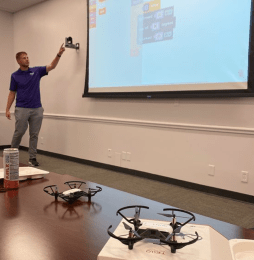

At their first meeting in October, our future teachers (EDCATS) learned about rural teaching resources the REC has available for them, including drones and other technology.
Want to help raise awareness with our students regarding teaching in rural schools and what your district has to offer? Contact Kevin Colle.

BSO Lets Districts Grow Their Own Teachers at Home
The Bachelor of Science Online with the K-State College of Education offers an innovative pathway to licensure for students who aren’t on campus but are in their home community working while finishing their degree and student teaching.
Lori Levin, coordinator of the BSO, says it provides flexibility–and allows students to stay at home while pursuing their dream of teaching.
“Because our program features a flexible yearlong half day student teaching schedule, students can continue to have employment and spread their final course work over two semesters,” Levin says. “Many of our students even work in the same building where they student teach.
The program is perfect for paraeducators and others with previously earned credits from a community college and can be completed in as little as 2 years after earning an associates degree. A degree from K-State is more affordable than you might think with many generous scholarships and financial aid opportunities.
The BSO brings the opportunity to earn a degree and become a licensed teacher to your doorstep with support from expert faculty all along the way. For more information, check us out at https://online.k-state.edu/programs/elementary-education-bachelors/
Then contact Lori Levin llevin@ksu.edu to see how you can help your paras and community members become licensed teachers for your district!
COE Faculty Returns to Rural with Latin Class
 Brad Burenheide, associate professor in Kansas State University’s College of Education, found clarity in his career seven years ago while sitting in the back row of a rural Kansas high school classroom observing a K-State student teacher.
Brad Burenheide, associate professor in Kansas State University’s College of Education, found clarity in his career seven years ago while sitting in the back row of a rural Kansas high school classroom observing a K-State student teacher.
While he has spent a decade and a half teaching at the university level, that classroom observation at Rock Creek High School (RCHS) in St. George, was a turning point: He needed to be back in the secondary classroom as a career companion piece for his university teaching.
“I was sitting in the classroom watching and I just thought about what I might do differently in the lesson,” he said. “The student was doing great, but I just thought it would be enjoyable and meaningful to be able to teach in the secondary classroom again.”
That’s when he took the first step.
“I asked the cooperating teacher what electives get taught at RCHS, and he said none,” Burenheide said. “They were maxed out in what their schedules could allow. I ran the idea past Todd Goodson, Curriculum and Instruction department chair at K-State and RCHS Principal Eric Koppes, and within a month, I was on the line schedule for Current Issues.”
It seems to have been a rather smooth addition to his teaching duties. It helped that Burenheide was familiar with USD 323 Rock Creek, where his children have gone to school.
“I live in Westmoreland, and it is a lovely little town of about 800,” he said. “The other town in the district is St. George, and its population is about 700. Rock Creek is a 3A/4A school district. It sits right on the line of the two classifications; however, this might be the last time in the current cycle that the high school is 3A. It is fortunate that it is one of the few districts still growing. The reputation of the school has been instrumental in this growth.”
 The district has 317 students in grades 9-12 this year. The rural area between the two towns has growing rapidly as Manhattan continues to sprawl eastward.
The district has 317 students in grades 9-12 this year. The rural area between the two towns has growing rapidly as Manhattan continues to sprawl eastward.
His own experiences as a student in a small town have shaped his opinion on the value of smaller rural schools.
Continue reading “COE Faculty Returns to Rural with Latin Class”
Rural News at Your Fingertips
We’ve saved you time and energy by creating a list of rural-related links we think you’ll find valuable.

Rural Health: Here are a couple of items from the FDA that show key information regarding rural health. For a quick glance, check out the infographic or the fact sheet.
Rural Newspapers: OK, as a former newspaper editor and reporter, I’m a little biased. But this article provides some background into a photo collection of (mostly) rural Kansas newspapers. Rural Kansas Newspaper Photo Project
Moving from Surviving to Thriving: A panel at a California event on wellness discussed how small rural schools can go beyond just surviving. Rural Schools Thriving
NREA Blog: The National Rural Education Association has an interesting blog. To select one entry wouldn’t do it justice, so here’s the blog and you can go to the posts that you find most valuable for your district. NREA Blog
Rural News for Your Next Roadtrip: If you get a lot of drive time, then consider listening to the NREA podcasts. Check it out here: NREA Podcast
Michigan Rural School Report: This article looks at research regarding rural Michigan schools and their challenges. Michigan Challenges
Celebrate Rural Teachers: The Rural Schools Collaborative has a specific site that showcases great rural teachers. Check out I am a Rural Teacher.
REC News In Case You Missed It: The Rural Education Center was named the Rural Schools Collaborative Kansas Hub. This exciting news means the REC is nationally connected with the organization and has even more possibilities for programs and projects to support rural schools. Read the announcement here: REC Selected as Hub
If you have items you’d like shared–or a great website that others need to know about, be sure to contact me (lagoodson@ksu.edu) and we will get the word out!
REC’s Kevin Colle Takes on New Role
We are excited to share that Kevin Colle, who has been serving as Project Coordinator for one of our federal grants, has a new title! Kevin is now Program/Project Coordinator for the REC, which means his new duties will include more involvement in a variety of REC projects. As part of that, he will be the sponsor for ED ASTRA, a new student group designed to encourage and support future rural teachers in the COE program. You can reach Kevin at klcolle@ksu.edu.
Let Us Hear From You!
![]()
The REC staff became involved in this center because we want to amplify rural education successes and help build upon those successes. We want your ideas on how we can best serve you. So please feel free to email us at ruraled@ksu.edu.
The Rural Education Center
Lori Goodson, Editor
Mary Hammel, Technical Editor
Welcome to our first Rural Education Center newsletter!

Welcome to the inaugural issue of the Kansas State University College of Education’s Rural Education Center newsletter, Rural Crossroads: Connections.
It’s a name we chose carefully because we believe rural life is at a vital crossroad, with opportunities for achieving great things for our students and for the future of our communities. It’s also important for us to realize these roads also provide a vital link to others along the same journey. We believe these connections can be a powerful thing, and we are excited to be part of this effort.
We’ve designed this newsletter for a variety of reasons, but with one key focus—providing an outlet for information regarding all things rural, especially education.
When we became the leaders of the Rural Education Center (REC) at KSU’s College of Education, we wanted to not only share developments regarding rural education, but also provide an opportunity for the voices of rural educators to share their successes, struggles, and observations inside and outside of the classroom. We want to discuss trends, events, and professional development activities. But we also want to share what makes rural life—and teaching in the rural schools—so unique and (mostly) endearing.
We hope you find our newsletter valuable. It’s a work in progress, and we’re eager to get your feedback. We’re also interested in having you contribute items to future issues. Please feel free to contact us by emailing Lori Goodson at lagoodson@ksu.edu. We’re looking forward to Rural Crossroads: Connections generating a dialogue that helps all of us impacted by rural life thrive.
Let’s continue our connections!
A little bit about the REC
Entering its fifth decade, the Center for Rural Education and Small Schools has been renamed the Rural Education Center. Along with Clark as its director, Lori Goodson, assistant professor of curriculum and instruction, serves as assistant director.
Approved by the Kansas Board of Regents in 1978, the center focuses on meeting the needs of rural schools in the state of Kansas. Clark and Goodson are emphasizing advocacy for rural schools and their communities by pursuing grant opportunities and other sources of funding to support various rural educational projects. They will also conduct research and coordinate other educational activities to support the learning opportunities for rural students and teachers. Clark and Goodson look forward to supporting current curriculum initiatives and goals associated with the Kansas State Department of Education school redesign, STEAM education, place-based education and civic engagement in rural schools.